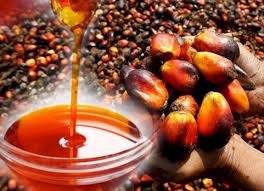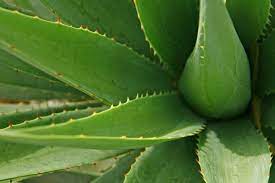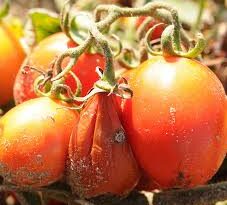Guide on Palm Oil Processing, Health Benefits and Uses
Palm oil processing refers to the process of extracting crude palm oil from the fruit of the oil palm tree. The process involves several stages, which may vary depending on the scale of the operation and the type of equipment used.
Palm oil processing can have significant environmental and social impacts, particularly if not done sustainably. It is important to ensure that palm oil processing is carried out using sustainable practices that minimize environmental harm and respect the rights and livelihoods of local communities.
Palm oil is a type of vegetable oil that is derived from the fruit of the oil palm tree, which is native to West Africa but is now widely cultivated in tropical regions around the world.
Palm oil is widely used in food production, particularly in the manufacture of processed foods, such as baked goods, snack foods, and margarine. It is also used in non-food products, such as cosmetics, soaps, and cleaning products.
Palm oil is a controversial commodity due to its environmental impact. The conversion of forests and other natural habitats to palm oil plantations has been linked to deforestation, habitat loss, and the endangerment of species such as orangutans and tigers.
The production of palm oil has also been associated with greenhouse gas emissions, particularly in Indonesia and Malaysia, which are major producers of the commodity.
Efforts are being made by governments, NGOs, and the palm oil industry to address the environmental and social concerns associated with palm oil production.
Some efforts include the development of sustainable palm oil certification schemes, the establishment of protected areas, and the adoption of more sustainable agricultural practices, such as agroforestry. Consumers can also make a difference by choosing products that use sustainable palm oil or alternative vegetable oils.
Read Also: The Definition and 21 Amazing Importance of Forestry
Palm Oil Processing Guide

Palm oil processing involves a series of steps that are required to extract palm oil from the fruit of the oil palm tree. Palm oil is one of the most widely consumed vegetable oils in the world and is used in a variety of food products, cosmetics, and household products. Below is a complete guide to palm oil processing:
Harvesting: The oil palm fruit bunches are harvested from the tree when they are mature enough, typically around 18-24 months after planting.
The oil palm fruit is harvested by hand or by mechanical means using harvesters. The fruit must be harvested when it is ripe to ensure a high yield of oil. The fruit bunches are then transported to the processing facility.
Sterilization: The harvested fruit is then transported to the processing plant, where it is sterilized to kill any bacteria or fungi that may be present. This is done by steaming the fruit at high pressure and temperature for a specified period of time.
Stripping: After sterilization, the fruit is stripped of its outer layer to reveal the palm nut. This is done using a stripping machine or manually using a knife.
Digestion: The palm nut is then crushed to extract the oil. This is done using a mechanical press or expeller. The crushed palm nut is then mixed with hot water to facilitate digestion of the oil-bearing cells. The mixture is then heated to a specified temperature for a specified time to release the oil.
Clarification: The oil and water mixture is then separated by passing it through a centrifuge or a settling tank. This separates the crude palm oil from the water and other impurities.
Purification: The crude palm oil is then purified to remove any remaining impurities. This is done by treating the oil with a mixture of chemicals, such as phosphoric acid, caustic soda, and bleaching earth. This process removes any residual gums, free fatty acids, and color pigments.
Fractionation: The purified palm oil can be fractionated to produce different types of oils with different melting points. This is done by cooling the oil and separating it into different fractions based on its melting point. This process can produce palm olein, palm stearin, and palm mid-fraction.
Refining: If the palm oil is intended for human consumption, it may be further refined to remove any remaining impurities and to improve its flavor and texture. This is done by a process called refining, which involves degumming, neutralization, bleaching, and deodorization. The final product is a clear, refined palm oil.
Packaging: The final step in palm oil processing is packaging the oil for shipment to customers. This may involve filling containers of various sizes and labeling them with information about the product.
Palm oil processing is a complex process that involves several stages to extract, purify, and refine the oil. Each stage is important to ensure the quality and purity of the final product.
It is very important to note that palm oil processing can have significant environmental and social impacts, and efforts should be made to ensure that it is done sustainably and responsibly.
This may involve using best practices for land use and management, minimizing waste and emissions, and respecting the rights and livelihoods of local communities.
Health Benefits of Palm Oil

Palm oil is a widely used vegetable oil that is extracted from the fruit of the oil palm tree. Below are 15 potential health benefits of palm oil:
1. Rich in antioxidants: Palm oil is high in antioxidants, which can help protect the body against damage from free radicals.
2. Heart health: Palm oil contains both saturated and unsaturated fats, which can help maintain healthy cholesterol levels and reduce the risk of heart disease.
3. Supports brain health: Palm oil is rich in vitamin E, which is essential for brain health and function.
4. May reduce inflammation: Palm oil contains tocotrienols, which have been shown to have anti-inflammatory properties.
5. Good for skin health: Palm oil contains high levels of vitamin E and beta-carotene, which can help improve skin health and prevent skin aging.
6. Boosts immune system: Palm oil is rich in vitamin A, which can help support a healthy immune system.
7. May lower cancer risk: Some studies have suggested that the tocotrienols in palm oil may have anti-cancer properties.
8. Helps maintain hormonal balance: Palm oil contains healthy fats that are essential for hormone production and regulation.
9. Good for eye health: Palm oil is a good source of beta-carotene, which is important for eye health and can help prevent age-related macular degeneration.
10. May help manage diabetes: Palm oil may help regulate blood sugar levels and improve insulin sensitivity in people with diabetes.
11. Supports liver health: Palm oil contains healthy fats that can help support liver function and prevent liver damage.
12. May improve digestion: Palm oil contains healthy fats that can help improve digestion and reduce symptoms of gastrointestinal disorders.
13. Good source of energy: Palm oil is a rich source of healthy fats, which can provide a sustained source of energy throughout the day.
14. May reduce the risk of Alzheimer’s disease: Some studies have suggested that the tocotrienols in palm oil may help prevent the development of Alzheimer’s disease.
15. Supports bone health: Palm oil contains vitamin K, which is essential for bone health and can help prevent osteoporosis.
Additionally, palm oil has a range of potential health benefits, including supporting heart health, brain function, skin health, immune function, and more.
However, it is important to consume palm oil in moderation as it is high in calories and saturated fats.
Uses of Palm Oil

Palm oil is a versatile vegetable oil that has a wide range of uses in various industries. Here are some of the most common uses of palm oil:
Food: Palm oil is used extensively in the food industry as a cooking oil and as an ingredient in many food products, such as margarine, baked goods, and snacks.
Cosmetics: Palm oil is used in a variety of cosmetic products, such as soaps, lotions, and shampoos, as it helps to moisturize and nourish the skin and hair.
Cleaning products: Palm oil is used in the production of many cleaning products, such as laundry detergents and soaps, as it helps to remove dirt and stains.
Biofuel: Palm oil is used as a biofuel in some countries, where it is blended with diesel to produce a cleaner-burning fuel.
Pharmaceuticals: Palm oil is used in the production of some pharmaceuticals, such as vitamin supplements and capsules.
Industrial applications: Palm oil is used in a variety of industrial applications, such as lubricants, inks, and paints.
Animal feed: Palm oil is sometimes used as an ingredient in animal feed, as it provides a good source of energy and essential fatty acids.
Personal care products: Palm oil is used in a variety of personal care products, such as lipsticks and deodorants, as it helps to moisturize and protect the skin.
Candles: Palm oil is used in the production of some candles, as it has a high melting point and can produce a long-lasting flame.
In addition, palm oil has a wide range of uses in various industries, including food, cosmetics, cleaning products, biofuels, and more.
However, it is important to use palm oil in a sustainable and responsible way to minimize its impact on the environment and protect the communities that rely on it for their livelihoods.
Read Also: 9 Healing Powers of Bay Leaf Plant (Laurus nobilis)
Economic Importance of Palm Oil
Palm oil is an important crop that has significant economic importance in many countries around the world. Here are some of the key economic benefits of palm oil:
Job creation: Palm oil cultivation and processing provide employment for millions of people around the world, particularly in developing countries.
Export revenue: Palm oil is one of the most traded commodities in the world, and many countries rely on it as a major source of export revenue.
Foreign investment: The palm oil industry has attracted significant foreign investment, which has helped to boost economic development in many countries.
Poverty reduction: Palm oil cultivation and processing can help to alleviate poverty in rural communities, where it provides income for smallholder farmers and other workers.
Infrastructure development: The growth of the palm oil industry has led to the development of infrastructure in many areas, including roads, ports, and processing facilities.
Food security: Palm oil is a key source of calories and fat in many developing countries, and its production can help to improve food security and nutrition.
Industrial development: Palm oil is used as a feedstock for a wide range of industrial applications, including biofuels, cosmetics, and cleaning products, which can help to drive industrial development and innovation.
Economic diversification: The palm oil industry can help to diversify the economies of many countries, reducing their reliance on a few key export commodities.
Rural development: Palm oil cultivation can help to stimulate rural development, as it provides income for smallholder farmers and other rural workers.
In conclusion, palm oil is an important crop that has significant economic importance in many countries around the world. However, it is important to balance economic development with environmental and social sustainability, to ensure that the benefits of the industry are shared fairly and that its impact on the environment is minimized.
Read Also: Food Waste Complete Management Guide









